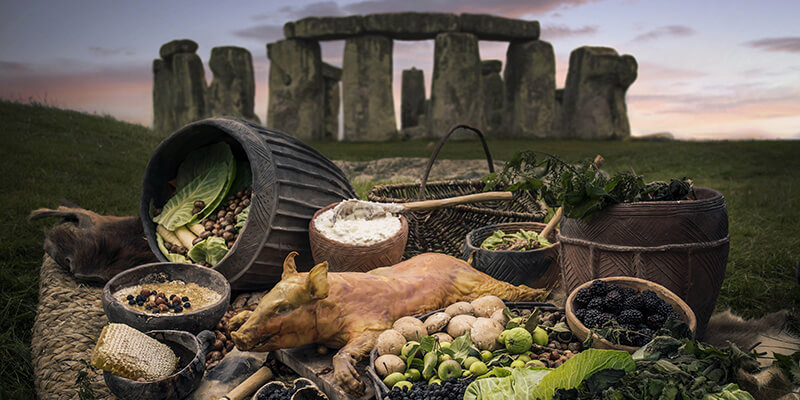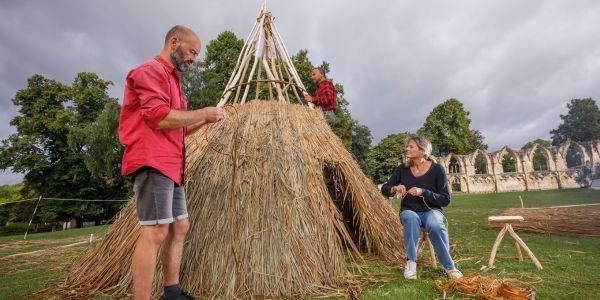
Mesolithic and Neolithic
Research impact
Public engagement:
- Star Carr life after the ice - exhibition at the Yorkshire Museum
Educational resources:
- Star Carr - to encourage children to develop and express their own ideas about the Mesolithic period.
- Feeding Stonehenge - to teach primary level science whilst learning about the Stone Age.

A Mesolithic house built in York Museum Gardens in August 2024 as part of a project between the Department of Archaeology and York Museums Trust. Photo credit: Gareth Buddo Furmoto Photography

.jpg)